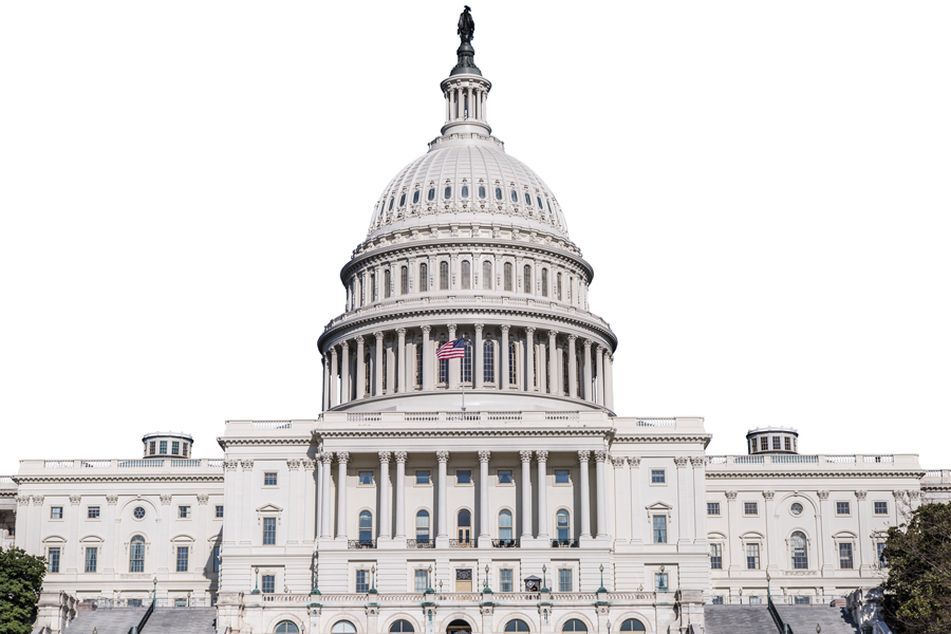Senate Democrats urge SEC to scrap proposed boost in stock reporting threshold

Lawmakers say SEC lacks authority to lift current $100 million ceiling and the change risks reducing transparency
Senate Democratic lawmakers are calling on the Securities and Exchange Commission to scrap a proposal that would allow many institutional money managers to avoid revealing their stock holdings.
The SEC’s proposed rule would raise the reporting threshold from $100 million to $3.5 billion. The agency said boosting the ceiling — which hasn’t been changed since it was put in place in 1975 — is needed to better reflect the size of today’s equity markets.
In a Wednesday letter to SEC Chairman Jay Clayton, four Democratic senators said the SEC went too far in raising the stock holding level at which the so-called Form 13F is required.
“The proposal would radically increase the reporting threshold for Form 13F reports by institutional investment managers, upending the existing reporting framework and eliminating a significant source of transparency in the U.S. stock market,” wrote Sen. Sherrod Brown, D-Ohio and ranking member of the Senate Banking Committee. “Instead, we urge the SEC to withdraw the proposal and consider Form 13F reforms that would increase transparency and utility.”
The letter also was signed by Sens. Tammy Baldwin, D-Wis., Jack Reed, D-R.I., and Chris Van Hollen, D-Md. An SEC spokesperson declined to comment.
In an interview at the CNBC Financial Advisor Summit earlier this week, Clayton defended the proposal, saying the reporting threshold needed to be reformed after more than 40 years but will still provide needed information to investors.
“We proposed a threshold that would have captured 90% of what’s currently captured,” Clayton said.
He also said there are limits on how much light Form 13F sheds on how professional money managers construct their portfolios given the 45-day window at the end of each quarter and calendar year when filings are due.
“It’s not what the form was designed for, but it’s — I will say this, it is very interesting to me how many people seem to use it for that purpose,” Clayton said.
The proposal has drawn widespread criticism in comment letters from organizations representing investors and financial advisers. House Financial Services Committee Chairwoman Maxine Waters, D-Calif., also has urged the SEC to withdraw the rule.
Critics assert that raising the reporting threshold as far as the SEC wants to do would deprive investors and advisers of important information they need to make investment decisions, manage investment strategies and monitor activist shareholders, such as hedge funds.
“It’s astonishing to me this is even out there being proposed,” said Marc Lichtenfeld, chief income strategist at The Oxford Club, a financial newsletter publisher. “Anytime you’re obscuring transparency, it’s a bad idea.”
The Democratic senators said the SEC cannot raise the reporting threshold, only lower it.
“To be clear, Congress did not provide the Commission with the statutory authorities to raise the 13F reporting threshold beyond $100 million, and no amount of legislative history can be used to contradict or defy the plain text of the law as written,” the lawmakers wrote. “The Commission derives its authorities, powers, and funds from Congress; not the other way around.”
The proposal is one of several that the SEC and other regulatory agencies are working on as the first Trump administration ends. If Democrats take over the Senate, and Democratic presidential nominee Joe Biden defeats President Donald Trump, the party would be in a position to undo rules that are finalized in the next few months.
Rules approved in the waning days of the administration could be rescinded under the Congressional Review Act. The American Action Forum concluded that any regulation that has gone final since May would be subject to such a vote next year.
It would be more difficult for the SEC to undo the stock reporting rule after it’s published in the Federal Register, if Biden wins and the five-member agency switches to a Democratic majority.
“The only way a new administration could unilaterally remove a regulation that’s been published is through notice-and-comment rulemaking,” Susan Dudley, director of The George Washington University Regulatory Studies Center, wrote in an email. “It would need action from other branches to avoid the lengthy rulemaking process, either Congress to pass a resolution of disapproval or the courts to invalidate a rule.”
It’s not clear whether Capitol Hill Democrats favor using the CRA process to strike down a new 13F rule. A spokeswoman for Brown was not immediately available for comment.
Learn more about reprints and licensing for this article.








